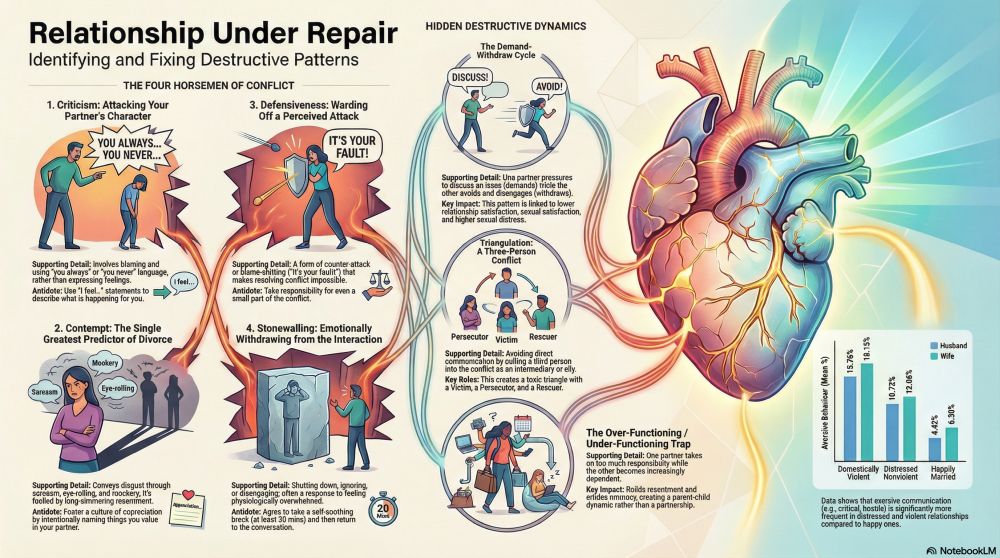Something fascinating just happened. Both Anthropic and OpenAI released data showing that therapy and companionship have quietly become the top reasons people turn to conversational technology—surpassing even work tasks. For platforms like CouplesAnalytics.com that focus specifically on relationship support, this shift opens up enormous possibilities.
The Numbers Don’t Lie
Here’s what caught everyone’s attention: roughly 2.9% of all conversations with these platforms involve emotional support, counselling, and personal advice. That might not sound like much until you realise ChatGPT has over 400 million weekly users. We’re talking about millions of people each week turning to technology for emotional support.
The therapy chatbot market tells an even bigger story. It’s expected to hit $10.26 billion by 2034, growing at 23% annually. That’s not a bubble—that’s sustained, explosive growth.
What’s really interesting is who’s driving this trend. Seven out of ten teenagers have tried therapy chatbots, and more than half use them regularly for emotional support. Among adults, half have experimented with psychological support tools, and globally, 50% of users have sought emotional wellbeing help through these platforms.
Real Clinical Results Are Coming In
The sceptics used to dismiss this as Silicon Valley hype, but the clinical data tells a different story. The Therabot study—the first properly controlled trial of a generative therapy chatbot—found participants experienced a 51% average reduction in depressive symptoms and a 19% reduction in eating disorder concerns. Those numbers match what you’d expect from traditional outpatient therapy.
A major review of 18 controlled trials with 3,477 participants confirmed these findings. Depression improved significantly (effect size of -0.26), anxiety decreased (effect size of -0.19), and the sweet spot seemed to be around eight weeks of regular use. Perhaps most surprisingly, participants reported feeling as connected to these digital therapists as they would to human ones.
The Market Is Taking Off
The business opportunity here is staggering. Therapy chatbots are projected to grow from $1.77 billion in 2025 to $10.16 billion by 2034—that’s over 21% compound annual growth. The broader healthcare chatbot market looks even more promising, potentially reaching $10.26 billion by 2034 from just $1.49 billion in 2024.
How People Actually Use These Tools
Anthropic’s research revealed some surprising patterns about emotional support conversations. Users tend to become more positive as conversations progress. Fewer than 10% of supportive conversations involve any pushback from the system. And people particularly turn to these tools during major life transitions—career changes, relationship troubles, personal growth moments.
Frequent users are twice as likely to have emotional conversations compared to casual users. People aren’t just making small talk either—they’re working through psychological trauma, workplace conflicts, existential questions, and relationship problems. In longer conversations (50+ messages), users dive into remarkably complex emotional territory.
Why CouplesAnalytics.com Has the Edge
While ChatGPT and Claude capture this general trend, CouplesAnalytics.com represents what comes next: specialised tools built specifically for relationship therapy and couples communication. Here’s what makes this approach different:
Purpose-Built Beats General-Purpose
The research exposed a fundamental limitation of general platforms—they’re built to be helpful assistants, not therapeutic specialists. Anthropic’s Claude, for instance, constantly reminds users it’s just an assistant. CouplesAnalytics.com, however, was built from the ground up for relationship dynamics, trained specifically on couples therapy methodologies.
Real Therapeutic Methods
Generic platforms offer generic advice. CouplesAnalytics.com incorporates validated relationship science and proven techniques like the Gottman Method, Emotionally Focused Therapy, and Acceptance and Commitment Therapy—all adapted specifically for couples work.
Bridging the Professional Gap
Mental health professionals worry about people using general chatbots for therapy without proper safeguards. CouplesAnalytics.com addresses this concern by providing structured, evidence-based interventions designed specifically for couples, not just repurposed general conversation.
Solving the Access Problem
With many therapists having months-long waitlists and traditional couples therapy costing $100–200 per session, CouplesAnalytics.com offers immediate, affordable support when couples need it most.
The Competitive Edge
Specialised expertise: ChatGPT knows about relationships. CouplesAnalytics.com specialises in them—trained specifically on relationship dynamics, communication patterns, and couples therapy interventions.
Structured approach: Instead of meandering conversations, CouplesAnalytics.com provides guided exercises, assessments, and structured interventions that actually work in couples therapy.
Long-term tracking: Unlike one-off chats, CouplesAnalytics.com tracks relationship patterns over time, identifies areas for improvement, and adapts interventions accordingly.
Built-in safety: Research shows concerning patterns of emotional dependence among heavy users. CouplesAnalytics.com includes safeguards and knows when to recommend human therapists.
Couples-focused design: While ChatGPT handles individual conversations, CouplesAnalytics.com facilitates joint exercises and interventions that require both partners’ participation.
Leading the Market, Not Following It
The data confirms people already seek relationship advice from technology—this market exists today. Anthropic found that “navigating relationships” and “working through personal growth” rank among the top reasons people seek support.
CouplesAnalytics.com isn’t just capitalising on this trend—it’s ahead of it, providing what general platforms can’t: specialised, evidence-based, relationship-focused support designed specifically for couples rather than adapted from general conversation models.
As OpenAI prepares to launch their network of human therapists and the market shifts toward hybrid human-technology models, CouplesAnalytics.com already occupies the sweet spot—bridging accessibility with therapeutic expertise specifically for relationships.
The therapy revolution isn’t coming—it’s here. People already use technology for relationship support. The real question is whether they’ll keep using generic tools that weren’t designed for this purpose, or switch to specialised platforms built specifically for their needs.
CouplesAnalytics.com represents where relationship support is heading: powered by advanced technology, grounded in evidence, accessible to everyone, and designed specifically for the unique challenges couples face. The market data, user behaviour, and clinical research all point to the same conclusion—this isn’t just another tech trend. It’s how people get help with their relationships now.


